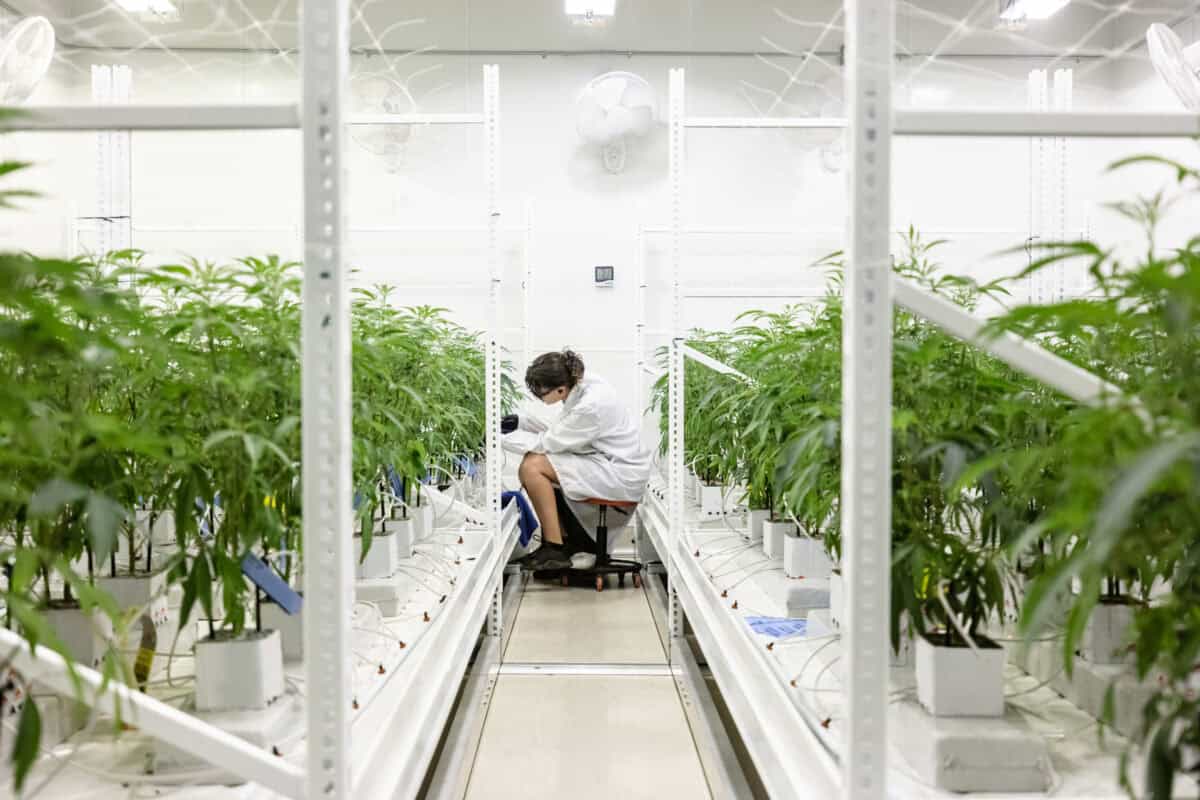The cannabis sector in 2025 is shaping up to be both exciting and challenging for investors. Over the past five years, cannabis stocks have been on a rollercoaster ride, plunging over 85% from their all-time highs as the initial hype around legalization faded into tough realities. These include oversupply, regulatory hurdles, and cash-burning business models.
But as we head into 2025, a new narrative is beginning to form, one centred on cautious optimism and potential U.S. regulatory shifts. For context, the U.S. legal cannabis market has shown resilience despite industry challenges. In 2021, the market was valued at US$27 billion, and it’s expected to grow to US$32.1 billion by the end of 2024. So, are cannabis stocks a buy, sell, or hold right now?
A case study
This brings us to Canopy Growth (TSX:WEED), one of the most recognizable names in the industry but also a poster child for the sector’s struggles. Canopy faced steep losses over the past few years, and its most recent earnings report for the quarter ending September 30, 2024, shows those headwinds are still strong.
Quarterly revenue fell by 9.5% year over year, reflecting ongoing challenges in market competition and price compression. Meanwhile, its net income loss for the trailing 12 months ballooned to $585.69 million, and operating cash flow remains at $160.26 million.
However, Canopy Growth’s strategic acquisition of Acreage Holdings, finalized in December 2024, has injected some optimism into the conversation. Acreage Holdings, a major U.S.-based multi-state operator (MSO), brings significant market exposure south of the border, which is where real opportunities lie. With the Acreage acquisition, Canopy has positioned itself for a strong foothold in the U.S., where any moves toward federal legalization could translate into skyrocketing revenues.
What to watch
Still, challenges remain. Canopy’s balance sheet reveals a company in need of financial discipline. It holds $235.94 million in cash but carries a significant debt burden of $613.52 million, giving it a debt-to-equity ratio of 120.38%. Such leverage isn’t unusual for cannabis stocks, but it does raise concerns about sustainability, especially if the anticipated U.S. reforms don’t materialize quickly. For investors, this means Canopy is still a speculative play that hinges heavily on regulatory tailwinds and a successful integration of Acreage Holdings.
Looking back at past performance, Canopy’s stock price has been a microcosm of cannabis stocks. Once trading at over $70 per share during the legalization euphoria, its price has now languished. Even with recent 1:10 stock splits designed to boost share price optics, Canopy has struggled to regain investor confidence.
Despite these hurdles, the future outlook isn’t entirely bleak. The cannabis industry still holds tremendous growth potential. Especially as stigma continues to decline and new product categories gain traction. Cannabis stocks like Canopy are actively restructuring their operations to become leaner, shedding non-core assets and focusing on high-margin products. The Acreage acquisition could prove pivotal if Canopy manages to leverage its scale and U.S. market access effectively.
Bottom line
So, are cannabis stocks a buy, sell, or hold in 2025? It depends on your investment horizon and risk tolerance. For long-term investors who believe in the inevitability of U.S. federal legalization, cannabis stocks represent a high-risk, high-reward opportunity. The sector is still volatile, but a well-timed reform could send valuations soaring. For short-term investors, caution is advised. Market sentiment remains fragile, and companies are still proving they can achieve sustainable profitability. This makes cannabis stocks, including Canopy Growth, more of a speculative hold than an outright buy.
In summary, 2025 could be a make-or-break year for the cannabis sector. With regulatory tailwinds, improved financial discipline, and U.S. market opportunities on the horizon, the industry has a chance to turn the tide. Canopy Growth, with its Acreage Holdings acquisition, could emerge as a frontrunner. Yet until the numbers tell a more consistent story, patience remains the name of the game.

